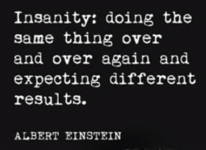You are using an out of date browser. It may not display this or other websites correctly.
You should upgrade or use an alternative browser.
You should upgrade or use an alternative browser.
Win 10 >>> Win 11
- Thread starter Pudsey Bear
- Start date
Pudsey Bear
Full Member
- Messages
- 15,884
Yes Neil I've used it but I turned it off in Windows not keen on it and I rarely actually use Windows for much, file explorer more than anything.
St3v3
Full Member
- Messages
- 1,823
As this has been a bit of hardware chat....
Boy decided he wanted to upgrade his PC for Christmas.
AMD Ryzen 7 7700X 4.5 GHz 8-Core Processor (16 threads)
Thermalright Peerless Assassin 120 SE ARGB 66.17 CFM CPU Cooler
Gigabyte B650 GAMING X AX V2 ATX AM5 Motherboard
TEAMGROUP T-Create Expert 32 GB (2 x 16 GB) DDR5-6000 CL30 Memory
It's all very good apparently He's already got a beast of a graphics card.
He's already got a beast of a graphics card.
Boy decided he wanted to upgrade his PC for Christmas.
AMD Ryzen 7 7700X 4.5 GHz 8-Core Processor (16 threads)
Thermalright Peerless Assassin 120 SE ARGB 66.17 CFM CPU Cooler
Gigabyte B650 GAMING X AX V2 ATX AM5 Motherboard
TEAMGROUP T-Create Expert 32 GB (2 x 16 GB) DDR5-6000 CL30 Memory
It's all very good apparently
Pudsey Bear
Full Member
- Messages
- 15,884
Whoosh>>>>>>>>>>
wildebus
Full Member
- Messages
- 7,792
Actually, this reminds me of a thought I had last week when watching a few reviews of the laptop I have ....As this has been a bit of hardware chat....
Boy decided he wanted to upgrade his PC for Christmas.
AMD Ryzen 7 7700X 4.5 GHz 8-Core Processor (16 threads)
Thermalright Peerless Assassin 120 SE ARGB 66.17 CFM CPU Cooler
Gigabyte B650 GAMING X AX V2 ATX AM5 Motherboard
TEAMGROUP T-Create Expert 32 GB (2 x 16 GB) DDR5-6000 CL30 Memory
It's all very good apparentlyHe's already got a beast of a graphics card.
Just about every review seems to talk about how it would work playing games. When did this obsession with having to have a PC that can play games come about? Sure, I can understand a boy your sons age wanting to do that, but how many adults are "gamers"?
I honestly have zero interest in the kind of video games that need high power CPUs and video cards, but it is impossible to see any review which doesn't talk games
wildebus
Full Member
- Messages
- 7,792
You make a very good point.I never mentioned it, but a picture tells a thousand stories.View attachment 75026View attachment 75027
Going over the same "use linux" bollox over and over again and expect anyone not interested to become interested. What does that make you?
Pudsey Bear
Full Member
- Messages
- 15,884
I always look at reviews for business machines.
trevskoda
Full Member
- Messages
- 6,352
Im trying to point out if not into games and high speed componants then any duo pc onwards will work 100% and secure, there is also no dees to pay and you own the sys unlike windows, pity some folk are stuck in the dark ages, good luck with win 11, not for me.You make a very good point.
Going over the same "use linux" bollox over and over again and expect anyone not interested to become interested. What does that make you?
I could say the same about you ranting on about MS and expecting others to be interested in its problems, as far as i know this site runs on linux and it dont seem to be a problem for you using it.
Pudsey Bear
Full Member
- Messages
- 15,884
I'm a big fan of Dell not having had one let me down at all, this seems to be a bit of a bad move after spending so long building up respected model names, seems like the in thing lately, Land Rover = JLR and a few others which for some reason escape me.

 www.pcworld.com
www.pcworld.com

Dell drops XPS, Inspiron, and Latitude brands
With new laptops introduced at CES, Dell's 2025 lineup will be missing some very familiar names.
wildebus
Full Member
- Messages
- 7,792
I'm not ranting on about MS, I am continuing pudseys conversation about his comments and findings on Win 11.Im trying to point out if not into games and high speed componants then any duo pc onwards will work 100% and secure, there is also no dees to pay and you own the sys unlike windows, pity some folk are stuck in the dark ages, good luck with win 11, not for me.
I could say the same about you ranting on about MS and expecting others to be interested in its problems, as far as i know this site runs on linux and it dont seem to be a problem for you using it.
I don't care about Linux one way or the other. Linux, Windows, the Apple OS whatever it is called... They are all just tools.
wildebus
Full Member
- Messages
- 7,792
Interesting. They had the latitude model range from virtually the very first laptop made. I remember taking the NC25 (the very first Dell colour laptop) around a show in Peterborough, powered up and running, to wind up the people on the Toshiba Stand. Toshiba were the #1 brand for portables at the time but their colour machine would only work when plugged into the mainsI'm a big fan of Dell not having had one let me down at all, this seems to be a bit of a bad move after spending so long building up respected model names, seems like the in thing lately, Land Rover = JLR and a few others which for some reason escape me.

Dell drops XPS, Inspiron, and Latitude brands
With new laptops introduced at CES, Dell's 2025 lineup will be missing some very familiar names.www.pcworld.com
I bought a Dell last month actually. First time in over 20 years. Decent machines but not touched them for personal reasons
The Lenovo I would say are the best of the regular options for Laptops, but I really love the styling and operation of my MS Surface. As long as you don't want a gaming laptop (I don't!), it is truly a cut above everything else on the market except for the Apple MacBooks, which is about on the same level probably
Last edited:
Pudsey Bear
Full Member
- Messages
- 15,884
Please stop Trev, as a person I like and respect you but it's the same post day in and day out it has gone beyond boring, you stick to what you like to use, but allow us the same priveledge, I put you on ignore over a year ago due to this constant barage of Linux promotion, you also keep telling us you have this and that but I've yet to see any of it.Im trying to point out if not into games and high speed componants then any duo pc onwards will work 100% and secure, there is also no dees to pay and you own the sys unlike windows, pity some folk are stuck in the dark ages, good luck with win 11, not for me.
I could say the same about you ranting on about MS and expecting others to be interested in its problems, as far as i know this site runs on linux and it dont seem to be a problem for you using it.
Please, just give it a rest, unless winding people up is your other hobby, in which case fill your boots.
Last edited:
Pudsey Bear
Full Member
- Messages
- 15,884
I had a couple of Lenovos, but they seemed to go through a phase about 3-4 years ago I ended up getting refunds, and decided to go used and carry a spare, it's been a good move for me, Liz and I have the same models and a spare to cover any eventualities, hers is on Win 11, I've jsut bought a new but different model but good enough spec for my useage.
Tezza33
Full Member
- Messages
- 1,627
I have two Lenovos, one running Windows 10 and the other later model running Windows 11, I have never had a problem with either, I also have two Microsoft Surface laptops both running Windows 11, they are excellent as David said, I bought them for the touchscreen capabilities but rarely use them with that, the only disadvantage is that it is a PITA to fit bigger harddrives in, I have never tried Linux, I have heard it makes you paranoid
wildebus
Full Member
- Messages
- 7,792
when I started a new job back in 2001, got given a Dell to use and it was fine, but I did find it was not very robust and the hinges started to crack. the next machine was an IBM Thinkpad (before IBM got out the PC game and sold off the business entirely to Lenovo) and that was far superior (IMO). Obviously it was a newer machine, but the overall build was better. It was not without its flaws and faults, but I liked it. (we used these laptops as proper portables, travelling around with them so they needed to be robust).I have two Lenovos, one running Windows 10 and the other later model running Windows 11, I have never had a problem with either, I also have two Microsoft Surface laptops both running Windows 11, they are excellent as David said, I bought them for the touchscreen capabilities but rarely use them with that, the only disadvantage is that it is a PITA to fit bigger harddrives in, I have never tried Linux, I have heard it makes you paranoid
When I had to buy a laptop for myself I went for an HP Convertible and that was pretty good and worked well, and I got a new HP x360 one a few years later (actually be 6 years ago next month). Got a pair of them and started off ok but the battery life became shocking on both
(Oh, and also gone through a few Netbooks with 10" screens before Tablets became a thing. Had a Sony Picturebook, a couple of different Samsung Netbooks and a Lenovo Netbook, all running various flavours of Windows. They all did their thing ok - terribly slow compared to modern machines and a current Tablet is a better option for most I would say).
Downside of the Surface machines - and especially the Surface Book 2 I have - is servicability is terrible compared to other brands. It is strongly recommended that buyers of the Surface machines make sure they get the spec they need up front as upgrades are really not feasible. My Surface Book 2 has the whole computer built into the screen section (like the surface Go and Pro I think?) - it is in many ways a Tablet, but in the case of the Book, with an detachable keyboard dock (My first HP laptop was the same actually )- got a keyboard, a 2nd battery and some ports in the base but can seperate the screen entirely from the base as opposed to rotating it 360 degrees.
But despite the lack of servicability (which as a hardware engineer guy, really goes against the grain to like), I love it - but if it goes wrong, I can't fix it
What I have done is fitted a memory card as a permanent thing and will save & sync my files to the memory card rather than just on the hard drive (actually an SSD) so if the machine won't start one day, I can easily access what I want without having to disassemble the computer. Used this same method on the HP and found it worked well. I would strongly recommend to anyone who uses a computer to think what happens when their computer stops working - how do they get important data off it? important to prepare a plan before it is needed
Last edited:
wildebus
Full Member
- Messages
- 7,792
It is surprising how many of those reviews also do go on about gaming! At least on the Youtube side. Maybe it gets the reviewer a wider audience and more 'suggestions' for his videos?I always look at reviews for business machines.
Pudsey Bear
Full Member
- Messages
- 15,884
I tend to go by what the PC mag says, then look for corroboration elsewhere not review video for the reasons you mention, okay for other info though, having said that, I need a decent screen res as I mainly use it for streaming stuff, a 15.6 with a numeric pad and decent size SSD and RAM, a illuminated keyboard, this one has a touch screen but I rarely use it unless my mouse has wandered off.
nabsim
Full Member
- Messages
- 4,194
Back in the late 90's all machines we bought were Dell. If you had a need for a laptop it was a Latitude with a full desk ready kit. This was really good and better than anything else around at that time. You slid the laptop into the dock which had full time Monitor, mouse and keyboard plugged into it. Pull the release and laptop slid out, in carry bag and out.
In 98 we were paying £2000 for a laptop and £1600 for a desktop. The laptop kit was really excellent, the desktops were a real rip off, company used to pay for support as well on the Dell kit
Back then few folks knew hot to source the right kit and build machines, how things have changed
In 98 we were paying £2000 for a laptop and £1600 for a desktop. The laptop kit was really excellent, the desktops were a real rip off, company used to pay for support as well on the Dell kit
Back then few folks knew hot to source the right kit and build machines, how things have changed
wildebus
Full Member
- Messages
- 7,792
Docking stations are very handy. I can't remember if I had one on the last Dell, but I did on the Thinkpad and bought a 2nd one to use at home. So handy.
I always thought it was a great way for a manufacturer to lock in their customers - supply Docks and then if they have hot desking, the company will want to standardise on the same make so everyone can use the Docks.
Nowaways, with the use of USB-C and Thunderbolt, a same Docking Unit can be used with different makes very easily so hard to lock them in in the same way. But having said that, I do have a Microsoft Surface Dock that connects to the proprietry Surface connector so would be no use with any other brand! (My surface doesn't have Thunderbolt so the Surface Dock is how I connect the laptop to a pair of external monitors)
Happy with a smaller 13.5" screen on mine as if I am using it at my desk, I have it connected to 24" and 27" screens.
I always thought it was a great way for a manufacturer to lock in their customers - supply Docks and then if they have hot desking, the company will want to standardise on the same make so everyone can use the Docks.
Nowaways, with the use of USB-C and Thunderbolt, a same Docking Unit can be used with different makes very easily so hard to lock them in in the same way. But having said that, I do have a Microsoft Surface Dock that connects to the proprietry Surface connector so would be no use with any other brand! (My surface doesn't have Thunderbolt so the Surface Dock is how I connect the laptop to a pair of external monitors)
I would really miss a touch screen now. I use it a fair bit and just as much as on a tablet. Super-handy to zoom a bit of a screen to zoom in on say a picture and to move around the screen.I tend to go by what the PC mag says, then look for corroboration elsewhere not review video for the reasons you mention, okay for other info though, having said that, I need a decent screen res as I mainly use it for streaming stuff, a 15.6 with a numeric pad and decent size SSD and RAM, a illuminated keyboard, this one has a touch screen but I rarely use it unless my mouse has wandered off.
Happy with a smaller 13.5" screen on mine as if I am using it at my desk, I have it connected to 24" and 27" screens.


